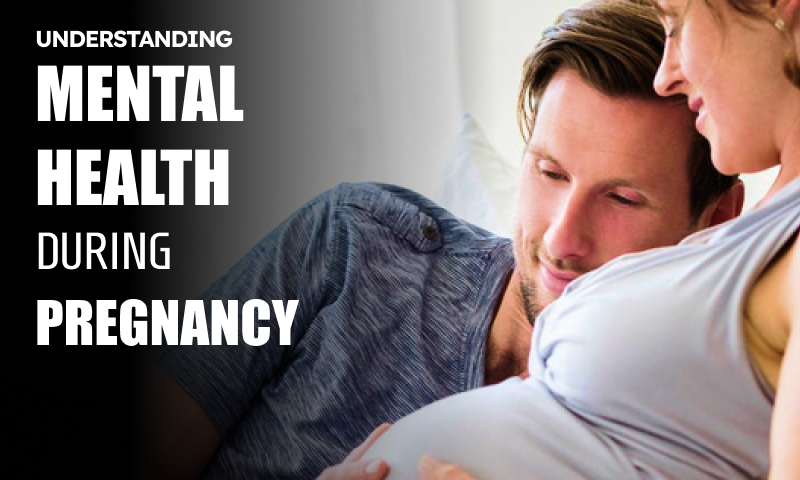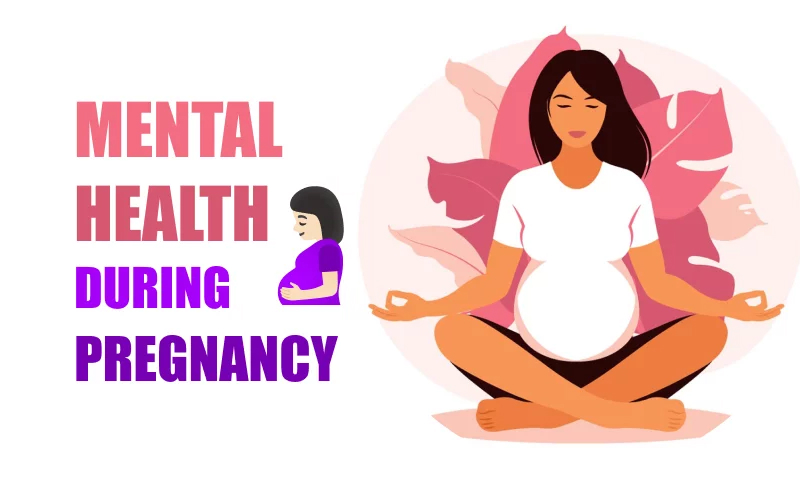Introduction
Pregnancy is a transformative and charged period in a woman’s life, marked by physical changes, hormonal fluctuations, and the anticipation of motherhood. While the focus often lies on the physical well-being of both the mother and the developing fetus. The significance of mental health during pregnancy is crucial. This comprehensive exploration delves into the multifaceted aspects of mental health for expectant mothers. Examining the mental effects of pregnancy and the strategies that can promote a positive pregnancy mental health experience.
Pregnancy is a transformative journey marked not only by physical changes but also by profound shifts in mental and emotional well-being. The intersection of maternal health and mental health during pregnancy is a critical aspect often overshadowed by the focus on mental health for pregnancy’s physical aspects. The emotional landscape traversed during this period is intricate, shaped by hormonal fluctuations, societal expectations, and personal aspirations. Recognizing the importance of mental health in pregnancy extends beyond the prevention of disorders; it encompasses the promotion of positive emotional states, resilience, and a supportive environment.
Expectant mothers often grapple with a spectrum of emotions, from the joy of impending motherhood to the anxieties associated with childbirth and parenting. This introductory exploration seeks to unravel the multifaceted dimensions of mental health for pregnancy. Setting the stage for a comprehensive examination of the mental effects of pregnancy. By understanding and addressing the complexities of maternal mental health. We pave the way for strategies and interventions that can enhance the overall well-being of both mothers and their unborn children.
Understanding Mental Health for Pregnancy
Understanding mental health for pregnancy involves recognizing the holistic well-being of expectant mothers, encompassing emotional, psychological, and social dimensions. It extends beyond the absence of mental disorders, emphasizing positive aspects such as resilience, self-esteem, and coping mechanisms. Hormonal fluctuations during pregnancy can affect neurotransmitters, influencing mood and emotional states.
The concept acknowledges the unique emotional journey of pregnancy, including the expected joys and the inevitable challenges. Nurturing mental health during this period involves creating a supportive environment that addresses anxieties, fosters open communication, and promotes positive body image. As we delve into the intricate aspects of maternal mental health, a more comprehensive understanding emerges. Allowing for targeted interventions that enhance the overall pregnancy experience for both mother and child.
Mental Effects of Pregnancy
Hormonal Changes and Emotional Rollercoaster
Pregnancy brings about significant hormonal changes, with elevated levels of estrogen and progesterone influencing neurotransmitters and contributing to an emotional rollercoaster. This fluctuating hormonal landscape often leads to sudden mood swings, increased sensitivity, and varying emotional responses, forming the so-called “emotional rollercoaster” experienced by expectant mothers. These hormonal dynamics not only play a vital role in supporting fetal development. But also affects the mental health of pregnant individuals. Navigating this emotional rollercoaster involves recognizing its transient nature and adopting coping strategies, such as open communication, relaxation techniques, and a robust support system. Understanding and addressing the emotional impact of hormonal changes during pregnancy are crucial steps toward promoting positive mental health and ensuring a smoother journey to parenthood.
Anxiety and Pregnancy-Related Concerns
Pregnancy often brings about heightened anxiety as expectant mothers grapple with various concerns related to childbirth, parenting, and the health of the baby. Fear of the unknown, coupled with the significant life changes impending, can contribute to a sense of unease. Common worries include the anticipation of labor, the responsibility of caring for a newborn, and concerns about the child’s well-being. Addressing anxiety during pregnancy is crucial, as persistent stress can impact both maternal and fetal health. Supportive environments, open communication with healthcare providers, and education about the normalcy of certain anxieties. They play vital roles in alleviating these concerns and promoting a more positive and emotionally stable pregnancy experience.
Depression and Perinatal Mental Health
Depression can cast a shadow over the transformative experience of pregnancy, affecting expectant mothers both emotionally and mentally. Perinatal depression is a type of clinical depression that can occur during pregnancy or in the first year after giving birth. It can present with a variety of symptoms, ranging from thoughts of hopelessness to chronic melancholy. Recognizing and addressing perinatal mental health is crucial for the well-being of both the mother and the developing baby. Intervention through counseling, support groups, and healthcare professionals can provide assistance to navigate this challenging aspect of pregnancy. And fostering a more positive mental health trajectory for the expectant mother and a healthier start for the newborn.
Body Image and Self-Esteem
Pregnancy starts a profound transformation in a woman’s body, influencing her perception of self and body image. The physical changes, including weight gain and alterations in body shape, can trigger shifts in self-esteem. Some women embrace and celebrate these changes, while others may struggle with feelings of insecurity or dissatisfaction. Societal expectations and media portrayal of pregnancy often contribute to unrealistic body standards, exacerbating these concerns. Cultivating positive body image during pregnancy involves promoting self-acceptance and realistic expectations and emphasizing the incredible journey of creating life. Support from partners, family, and healthcare providers is pivotal in fostering healthy self-esteem. And allowing expectant mothers to embrace and celebrate the unique changes occurring during this transformative period.

Factors Influencing Mental Health During Pregnancy
Social Support
- The part that friends, family, and partners play in offering emotional support.
- The significance of open communication and shared responsibilities in fostering a supportive environment.
Sociocultural Influences
- Cultural norms and societal expectations regarding pregnancy.
- Addressing stigmas and promoting cultural sensitivity in perinatal mental health care.
Economic and Environmental Factors
- The impact of economic stressors and living conditions on mental health.
- Strategies for mitigating financial stress and creating a positive home environment.
Strategies for Promoting Positive Pregnancy Mental Health
Prenatal Education and Counseling
- The importance of comprehensive prenatal education in addressing mental health concerns.
- Counseling services provide a safe space for expectant mothers to express their feelings and fears.
Physical Activity and Nutrition
- The role of regular exercise in improving mood and reducing stress.
- A balanced and nutritious diet to support both physical and mental health during pregnancy.
Mindfulness and Relaxation Techniques
- Incorporating mindfulness practices and relaxation techniques to manage stress.
- The benefits of activities such as yoga and meditation in promoting emotional well-being.
Access to Mental Health Care
- Ensuring accessible and affordable mental health care for pregnant women.
- Integrating mental health screenings into routine prenatal care to identify and address issues.
**Also Read** – Meditate During Pregnancy
Conclusion
The journey of pregnancy goes beyond the physical changes and medical milestones, encompassing the intricate landscape of mental health. Acknowledging and addressing the mental effects of pregnancy is fundamental for the well-being of both the expectant mother and the developing fetus. By understanding the factors that influence pregnancy mental health and implementing strategies to promote positivity, society can contribute to creating a supportive and nurturing environment for pregnant women. As we advance in our understanding of mental health during pregnancy, it becomes imperative to integrate comprehensive mental health care into prenatal services, fostering a holistic approach that ensures the happiness and health of mothers and their babies.
FAQs
How does pregnancy affect mental health?
Pregnancy can trigger hormonal changes, leading to mood swings, anxiety, and concerns about childbirth and parenting.
Is it common to experience anxiety during pregnancy?
Yes, anxiety is prevalent because of uncertainties about the future, childbirth, and the well-being of the baby.
Can hormonal changes lead to depression during pregnancy?
Yes, hormonal fluctuations can contribute to perinatal depression, affecting maternal mental health.
How can one maintain good mental health during pregnancy?
Strategies include open communication, a strong support system, mindfulness practices, and seeking professional help if needed.

